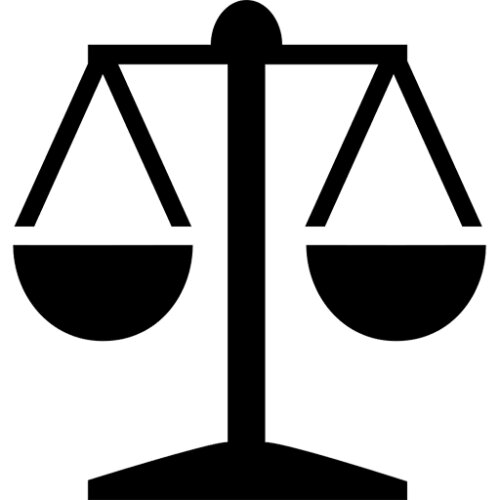Best Nonprofit & Charitable Organizations Lawyers in Nice
Share your needs with us, get contacted by law firms.
Free. Takes 2 min.
List of the best lawyers in Nice, France
About Nonprofit & Charitable Organizations Law in Nice, France
Nonprofit and charitable organizations in Nice, France, play a significant role in community development and social welfare. These organizations operate under specific legal frameworks designed to support their mission-driven activities while ensuring transparency and accountability. Nonprofit entities, also known as "associations," are governed by the French Law of 1901, which permits individuals to organize for a variety of purposes, provided they do not seek profit. Charitable entities or "fonds de dotation" often focus on public benefit activities and are subject to additional fiscal regulations. Understanding the intricacies of these regulations is essential for effective and lawful operation in this vibrant part of France.
Why You May Need a Lawyer
Engaging a lawyer experienced in nonprofit and charitable organization law is crucial for various reasons. Common scenarios where legal assistance may be required include:
- Formation: Navigating the legal requirements for establishing an association or a foundation.
- Governance: Ensuring compliance with internal governance rules and external legal obligations.
- Taxation: Addressing complex tax issues, such as obtaining tax-exempt status or managing donations.
- Contracts: Drafting and reviewing agreements with donors, employees, and partners.
- Dispute Resolution: Handling conflicts that may arise within the organization or with external parties.
Local Laws Overview
In Nice, France, nonprofit organizations are predominantly regulated by the 1901 Law on Associations and by specific governance and operational norms applicable to certain types of charitable organizations like "fondations" and "fonds de dotation." Key aspects of local laws include:
- Registration: Organizations must register with the local prefecture to obtain legal recognition.
- Reporting Obligations: Annual financial reporting and transparency in activities are mandated to maintain compliance.
- Tax Benefits: Certain fiscal benefits are available for recognized nonprofits, but they require vigilance in compliance to sustain eligibility.
- Employment Law: Legal obligations extend to employment practices within the organization, ensuring fair labor standards.
Frequently Asked Questions
What is the process of setting up a nonprofit organization in Nice?
To set up a nonprofit, you must draft bylaws, hold an inaugural meeting, and register the organization with the local prefecture. Upon approval, you will receive a receipt (récépissé) that grants legal entity status.
Are nonprofit organizations required to pay taxes in France?
Nonprofit entities may be exempt from certain taxes, but this depends on their activities aligning with their philanthropic purposes. Proper financial management and adherence to the tax code are crucial.
Can foreign nationals start a nonprofit organization in Nice?
Yes, foreign nationals can establish an association in France, provided they comply with local laws and registration requirements.
What legal documents are essential for a nonprofit organization?
Key legal documents include the bylaws, registration documents, meeting minutes, financial statements, and contracts with third parties.
How can a nonprofit organization obtain funding?
Funding can be acquired through memberships, donations, government grants, and fundraising events. Legal guidance is important to ensure compliance with the regulations governing each funding source.
What are the reporting requirements for nonprofit organizations?
Nonprofits must maintain accurate records of financial transactions and submit annual reports to relevant governmental bodies to ensure transparency and accountability.
Can nonprofit organizations engage in commercial activities?
While primarily focusing on charitable activities, nonprofits may engage in commercial activities provided the revenues are reinvested into their primary missions.
What are the liabilities of board members in a nonprofit organization?
Board members may be personally liable for actions that result in financial losses or legal infractions; hence, understanding their legal responsibilities is crucial.
Is it necessary to engage a lawyer for every legal issue?
While not mandatory, consulting a lawyer can help navigate complex legal issues and prevent future legal challenges.
What steps should be taken if a nonprofit organization is involved in a legal dispute?
Engaging a lawyer experienced in nonprofit law should be the first step to assess the situation, explore mediation options, and ensure proper representation.
Additional Resources
For individuals seeking in-depth legal assistance or more information, the following resources may be helpful:
- Préfecture des Alpes-Maritimes: Offers registration and legal requirements information for nonprofits.
- Centre de Ressources et d’Information des Bénévoles (CRIB): Provides guidance and support to volunteer organizations.
- Local Legal Clinics: Offer pro bono legal advice for nonprofit organizations.
- Official National Database: Lists recognized nonprofit organizations and their legal status.
Next Steps
If you need legal assistance in establishing or managing a nonprofit or charitable organization in Nice, France, consider taking the following steps:
- Research and reach out to law firms or independent lawyers specializing in nonprofit law.
- Gather necessary documents and clearly outline the legal issues or questions you have.
- Schedule a consultation with a lawyer to discuss your organization's legal needs and receive tailored advice.
- Join networking groups or professional associations for nonprofits to access shared experiences and resources.
By taking these steps, you can ensure that your nonprofit operates within the legal framework and focuses on achieving its mission and objectives efficiently.
Lawzana helps you find the best lawyers and law firms in Nice through a curated and pre-screened list of qualified legal professionals. Our platform offers rankings and detailed profiles of attorneys and law firms, allowing you to compare based on practice areas, including Nonprofit & Charitable Organizations, experience, and client feedback.
Each profile includes a description of the firm's areas of practice, client reviews, team members and partners, year of establishment, spoken languages, office locations, contact information, social media presence, and any published articles or resources. Most firms on our platform speak English and are experienced in both local and international legal matters.
Get a quote from top-rated law firms in Nice, France — quickly, securely, and without unnecessary hassle.
Disclaimer:
The information provided on this page is for general informational purposes only and does not constitute legal advice. While we strive to ensure the accuracy and relevance of the content, legal information may change over time, and interpretations of the law can vary. You should always consult with a qualified legal professional for advice specific to your situation.
We disclaim all liability for actions taken or not taken based on the content of this page. If you believe any information is incorrect or outdated, please contact us, and we will review and update it where appropriate.













